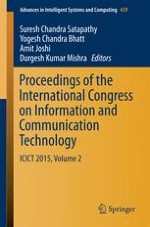2016 | OriginalPaper | Chapter
Energy Efficient Data Aggregation Technique Using Load Shifting Policy for Wireless Sensor Network
Authors : Samarth Anavatti, Sumedha Sirsikar, Manoj Chandak
Published in: Proceedings of the International Congress on Information and Communication Technology
Publisher: Springer Singapore
Activate our intelligent search to find suitable subject content or patents.
Select sections of text to find matching patents with Artificial Intelligence. powered by
Select sections of text to find additional relevant content using AI-assisted search. powered by
